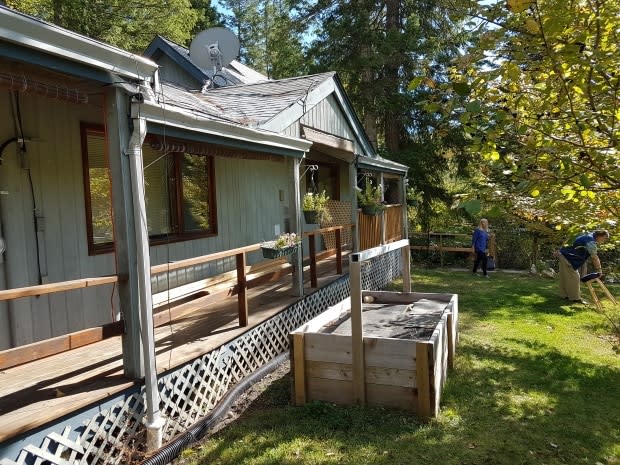Retired couple out thousands of dollars after tenants skip out on paying rent during COVID-19
A couple in B.C.'s interior say they were nearly forced to sell their retirement dream home after two renters left them in the lurch for thousands of dollars.
Now Clive Callaway, 76, and Cathryn Rankin, 70, say the province needs to do more to support low-income landlords like them who rely on rent to make ends meet.
The pair reside on Gardom Lake near Salmon Arm in the province's Shuswap region, with much of their fixed income going toward home repairs and maintenance.
To help cover costs, they started renting a suite to two tenants in January.
Rankin said the relationship started out fine, but the rent payments stopped coming in even though at least one of the tenants was receiving government support during the COVID-19 shutdown.
"One of them got support from the CERB and was earning more money than I did per month," Callaway said. "For us, it was actually a survival issue."
Then the tenants disappeared, one in June and the second in August, owing a combined total of $4,663 for five months of unpaid rent and utility bills.
Faced with the loss, Callaway contemplated selling the house to get by.
"As low income seniors struggling and being dependent on the rental income to top up our low pensions, it was nerve-wracking," he said.

Instead, the couple got an order from the province's residential tenancy branch stating the former tenants have to pay the owed money. Unfortunately, Callaway has no idea where they are.
"I feel personally the government's almost legislated a form of theft on us," Callaway said. "We've been forced to pay up the money, but we're getting no help to recover it."
Dave Hutniak of the non-profit organization LandlordBC said many landlords are people like Callaway and Rankin, renting out a room or basement suite so they can afford to keep their home.
And while there are legal options for recovering unpaid rent, he said it's a difficult and time-consuming option for people who might already be struggling to make ends meet.
"If you're a small landlord experiencing financial hardship…. That's small consolation," he said.
Hutniak said the situation was exacerbated in some cases by a provincial order in March that banned most evictions so people wouldn't be made homeless during COVID-19.
While he understands the policy was aimed at protecting renters, Huntiak said it created uncertainty for many landlords facing their own financial struggles.
Callaway said he was also frustrated by the fact commercial landlords could apply directly for relief money, small residential landlords could not.
"I feel that over 50 per cent of the problem is really caused by the government and their, I call it 'No-evict bylaw'," he said. "It wasn't deeply thought out enough."
No one from the residential tenancy branch or responsible ministries was able to speak to the issue because of the provincial election.
Hutniak said COVID-19 is an unprecedented situation and emphasized that most landlords and tenants were able to work together to navigate the crisis using tools provided by the province.
"It's a small amount of irresponsible renters that ruin it for landlords, just as it's a small number of [irresponsible] landlords." he said. "The vast, vast, vast majority of tenancies work."
Callaway and Rankin hope that's true. For now, they have found "two great new tenants" and are optimistic the relationship will let them continue living in their dream retirement home.
"Our rental income is the only way we can afford to stay here and age-in-place so we will give it one last try," Callaway said.

